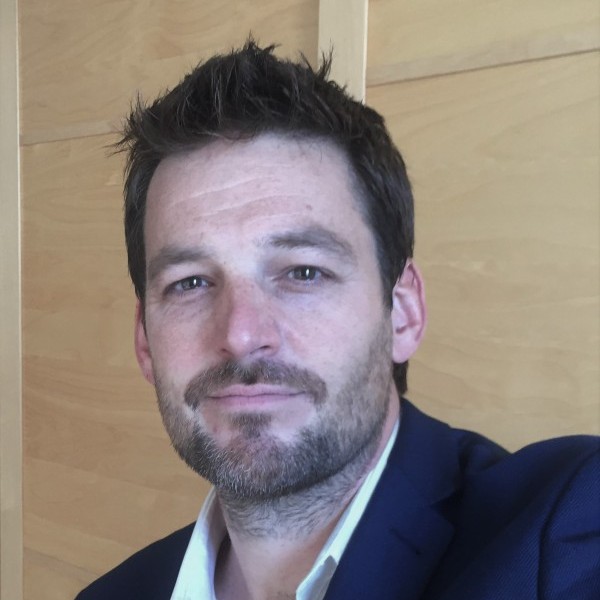

Flagship projects bring more focus to growing VoltaChem program
10-05-2021 | Program update
 A lot has happened in the VoltaChem program in 2020, despite of the COVID-19 pandemic. "We achieved great results last year and started appealing projects" says program director Martijn de Graaff. "Electrification is clearly on the rise". In order to bring more focus to the growing VoltaChem portfolio, he draws a clear picture of the flagship projects that will start playing an important role.
A lot has happened in the VoltaChem program in 2020, despite of the COVID-19 pandemic. "We achieved great results last year and started appealing projects" says program director Martijn de Graaff. "Electrification is clearly on the rise". In order to bring more focus to the growing VoltaChem portfolio, he draws a clear picture of the flagship projects that will start playing an important role.
After the shock of the initial lockdown, VoltaChem researchers found a modus operandi to continue working in the labs, together with partners. "Others, like me, started working from home and spent a lot of time in Teams meetings" says De Graaff. "But in the end, the progress of the program and underlying projects was hardly affected." A big drawback, however, was that the annual event had to be cancelled and direct contact with members and stakeholders was limited. An online alternative was provided as part of the virtual European Industry & Energy Summit, "but such online meetings offer very limited personal interaction. We all miss that."
As a lockdown alternative to the regular meetings of its Business Community, VoltaChem has started VoltaChem's Monthly Munchies, short online meetings held monthly on a Wednesday during the lunch hour. These meetings feature presentations by VoltaChem team and community members, followed by discussions on broad topics in electrification. Think material scarcity, availability of renewable electricity, laws and regulations, and cross-border aspects. De Graaff is enthusiastic about these meetings: "They offer a very nice opportunity to exchange ideas, communicate results, and get feedback from our Community Members. And they are quite inspiring. Already interesting new project ideas have come out of them." So the Monthly Munchies are here to stay: "It is a great addition to the meetings on location at members of the VoltaChem Community, which we hope be able to organize again soon."
Expanding program
If there is one word that characterizes VoltaChem's development in 2020 it is growth. The VoltaChem website shows that: many projects, an impressive list of collaboration partners and a growing business community. "In addition, last year the facilities in Delft and Petten have been greatly expanded," says De Graaff. "It is really fantastic what we can do there by now."
Because of the expanding program with a variety of projects and a diversity of participants, the need arose to clearly define where VoltaChem is heading. This led to the identification of flagship projects that constitute the core of the program. In these projects a dedicated multi-year roadmap is followed to ultimately be able to take decisions and bring technology to the market, together with industrial partners. De Graaff: "These are topics that we expect to really make a big impact in the field of electrification. We proactively bring parties together and work towards bilateral projects with commercial relevance, involving committed companies that want to invest. In addition, we maintain our shared research approach, where we continue to formulate and execute individual projects in the program, publicly and privately funded. The high-level non-confidential results of these projects are always fed back to the entire VoltaChem Community."
Transition of industry
De Graaff notes that VoltaChem does not want to act as an 'electrification prophet'. "Our focus is on industrial electrification as part of the overall industry transition; the transition to a circular economy powered by renewable energy", he says.
"Electrification is a crucial enabler that allows the use of renewable electricity for industrial processes that are currently powered by fossil fuels. But it is all about the big picture in which the energy cycle and the feedstock cycle are connected. In chemistry we are used to oil, gas and also coal being both energy source and feedstock. We have to realize that the industrial transition involves decoupling these two functions. We therefore need to develop sustainable alternatives for both energy supply (decarbonization) and raw material supply (recarbonization). This awareness and this distinction will more and more underpin VoltaChem's program lines. And of course we are making every effort to bring this to the attention of our community and all relevant stakeholders."
Broad perspective
 The flagship project System Change and Business Impact in the Power-2-Integrate program line highlights overarching, integral aspects of electrification. "It's about developing a shared understanding of whattechnology options are available, when best to deploy them, and whereto do that. That's a matter of infrastructure, nationally and internationally, but also of establishing the most promising target molecules, both in the short- and long term. We have mapped out the energy mix and infrastructure for the Rotterdam industrial cluster and in the context of the trilateral setting including Geleen, Antwerp and the Ruhr area. This provides perspective to the technology options both in time and in place: when will they be feasible, and where in Europe. We have also looked at the merit order of electrification: where in industry can the available electrons best be used to achieve CO2 reduction, and how does that relate to non-industrial use such as electric cars or heat pumps. Here, too, the international perspective is important: do we want to generate our own electrons nationally, do we do so in a European context, or do we import them from elsewhere? And in the latter case: will that be in the form of electricity, or in the form of molecules such as hydrogen, methanol, or ammonia? In order to be able to answer all these questions in a structured, comprehensible manner, the coming years we will be acquiring insights in the Fieldlab Industrial Electrification in Rotterdam-Moerdijk, which has already been launched. We hope to achieve the first results there in 2021."
The flagship project System Change and Business Impact in the Power-2-Integrate program line highlights overarching, integral aspects of electrification. "It's about developing a shared understanding of whattechnology options are available, when best to deploy them, and whereto do that. That's a matter of infrastructure, nationally and internationally, but also of establishing the most promising target molecules, both in the short- and long term. We have mapped out the energy mix and infrastructure for the Rotterdam industrial cluster and in the context of the trilateral setting including Geleen, Antwerp and the Ruhr area. This provides perspective to the technology options both in time and in place: when will they be feasible, and where in Europe. We have also looked at the merit order of electrification: where in industry can the available electrons best be used to achieve CO2 reduction, and how does that relate to non-industrial use such as electric cars or heat pumps. Here, too, the international perspective is important: do we want to generate our own electrons nationally, do we do so in a European context, or do we import them from elsewhere? And in the latter case: will that be in the form of electricity, or in the form of molecules such as hydrogen, methanol, or ammonia? In order to be able to answer all these questions in a structured, comprehensible manner, the coming years we will be acquiring insights in the Fieldlab Industrial Electrification in Rotterdam-Moerdijk, which has already been launched. We hope to achieve the first results there in 2021."
Next-generation electrolyzers
 The flagship project Next-Generation Water Electrolysis in the Power-2-Hydrogen program line concerns the next phase of hydrogen production. "The current phase involves scaling up state-of-the-art alkaline and PEM technology, from megawatt to gigawatt scale," says De Graaff. "Companies are increasingly operating in a growing market and scaling up existing technologies, many times supported by governments. As VoltaChem our technical role is limited, because this is predominantly the core business of these companies. But somewhere around 2030 a shake-out is to be expected as subsidies are phased out and technology has to become commercially viable. Therefore, there will be a need for next-generation electrolysis technology that is more efficient and can be scaled up cost-effectively. We have to start right now to develop this next generation technology so that we can meet the rising hydrogen demand of 2030 and 2050.
The flagship project Next-Generation Water Electrolysis in the Power-2-Hydrogen program line concerns the next phase of hydrogen production. "The current phase involves scaling up state-of-the-art alkaline and PEM technology, from megawatt to gigawatt scale," says De Graaff. "Companies are increasingly operating in a growing market and scaling up existing technologies, many times supported by governments. As VoltaChem our technical role is limited, because this is predominantly the core business of these companies. But somewhere around 2030 a shake-out is to be expected as subsidies are phased out and technology has to become commercially viable. Therefore, there will be a need for next-generation electrolysis technology that is more efficient and can be scaled up cost-effectively. We have to start right now to develop this next generation technology so that we can meet the rising hydrogen demand of 2030 and 2050.
We developed a cost reduction roadmap to 2050 and mapped out the European supply chain. On this basis, we opted for PEM technology in which we have already built up a serious track record and for which we have dedicated component test facilities. For the next generation PEM elektrolyzers it is imperative to bring down material costs, in particular of membranes and catalysts. And we must move towards material-extensive electrolysers with less platinum and iridium. On all these fronts lie substantial innovation challenges but also evident opportunities exist. One of the first milestones will be a low-iridium membrane electrode assembly, which we will deliver in 2021.”
Integrated conversion of CO2
 In the Power-2-Chemicals program line the flagship project is Capture Integrated CO2 Electrolysis. "Here we are steadily continuing our efforts in efficient CO2 utilization, something we have been working on for years," says De Graaff. "We are taking the next step in scaling up the test facility. And in 2021 we will work with partners to further develop the process for specific pilot molecules such as oxalic acid, formaldehyde, and dimethyl carbonate."
In the Power-2-Chemicals program line the flagship project is Capture Integrated CO2 Electrolysis. "Here we are steadily continuing our efforts in efficient CO2 utilization, something we have been working on for years," says De Graaff. "We are taking the next step in scaling up the test facility. And in 2021 we will work with partners to further develop the process for specific pilot molecules such as oxalic acid, formaldehyde, and dimethyl carbonate."
In addition to this flagship project, there are several equally compelling projects where biobased feedstocks are electrochemically converted into specialty chemicals. But these are bilateral projects and De Graaff can hardly disclose any details. "The companies involved really see market opportunities and are investing substantially," De Graaff explains. "So we see the market relevance of our work increasing. That's what we do it for." The VoltaChem strategy is to generate new proof-of-principles each year, De Graaff says, and at the same time bring proof-of-principles from previous years to higher TRL levels. "This way we aim at continually bringing new electrochemical routes to implementation. Of course, not every new concept will lead to a successful industrial process. But by demonstrating examples where electrochemistry does succeed, we will certainly be able to boost interest from industry."
Upcoming technologies
Since this year, VoltaChem is developing promising new developments in the new program line of Upcoming Power-2-X Technologies. One of the projects is the development of high-efficiency Solid Oxide Electrolysis concepts for CO2 conversion. For this the foundations have already been laid at laboratory scale. "This promising concept has a clear niche of high temperature applications and industrial heat integration," says De Graaff. "One of the prospects is large-scale integrated industrial CO2 conversion to synthesis gas, as a platform for industrial synthesis of chemicals and polymers. We have started a first project on that."
The Upcoming Power-2-X flagship project is Plasma Decarbonization of Methane. This is a new concept that generates hydrogen (and carbon) via plasma-assisted pyrolysis. It is a new electrification opportunity with very high potential, according to De Graaff. "We have identified this last year and are going to build a plasma lab with our partner Brightsite in Geleen in 2021. In the following years, we will define concrete projects." Methane is a fossil, unsustainable feedstock, but De Graaff doesn't see that as an obstacle. "In our view it offers an interesting and relevant option for making hydrogen production more sustainable. And ultimately this will also offer prospects for the utilization of non-fossil raw materials."
VoltaChem in Action 2020
De Graaff: "Earlier this year, we published our VoltaChem in Action 2020 booklet. It gives insight in our VoltaChem Shared Innovation Program and the progress we made in 2020. It contains a nice overview of project highlights per program line, including our Flagship projects."
Want to know more?
If you would like to know more about the VoltaChem program, our services, or one of the flagship projects, please contact one of the business development managers, or join the international VoltaChem business community.
Share this page:
Contact
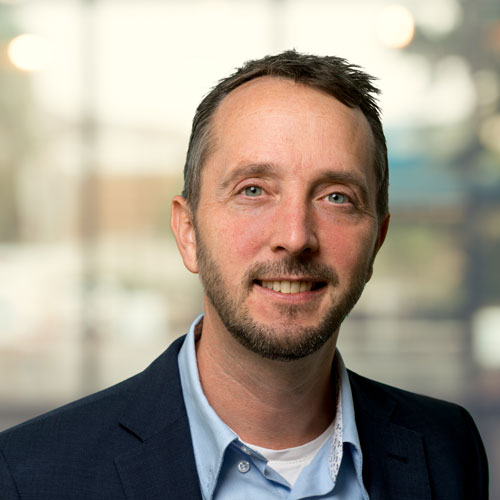
Martijn de Graaff
Program Director VoltaChem
+31 6 222 608 71
martijn.degraaff@voltachem.com
LinkedIn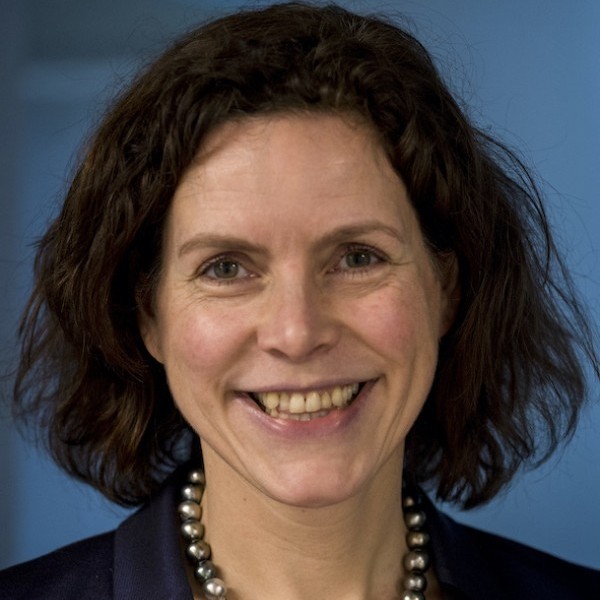
Monique Rijkers
Business Development Power-2-Integrate & Community Manager
+31 6 233 465 16
LinkedIn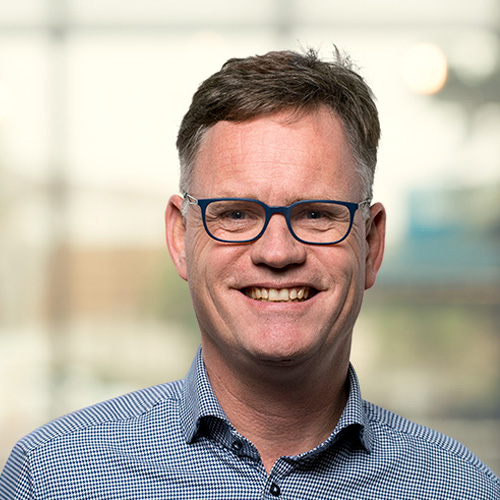
Reinier Grimbergen
Principal Consultant Power-2-X
+31 6 271 438 18
reinier.grimbergen@voltachem.com
LinkedIn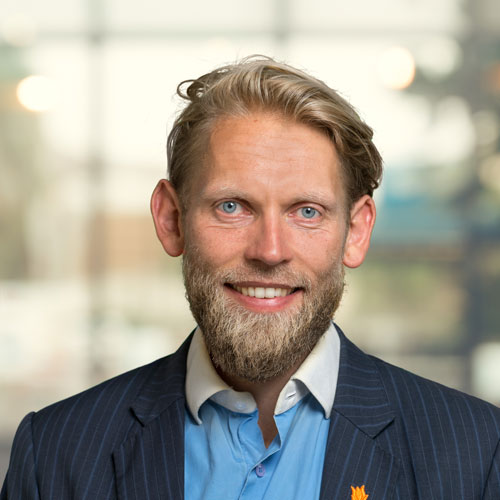
Lennart van der Burg
Business development Power-2-Hydrogen
+31 6 439 546 85
lennart.vanderburg@voltachem.com
LinkedIn